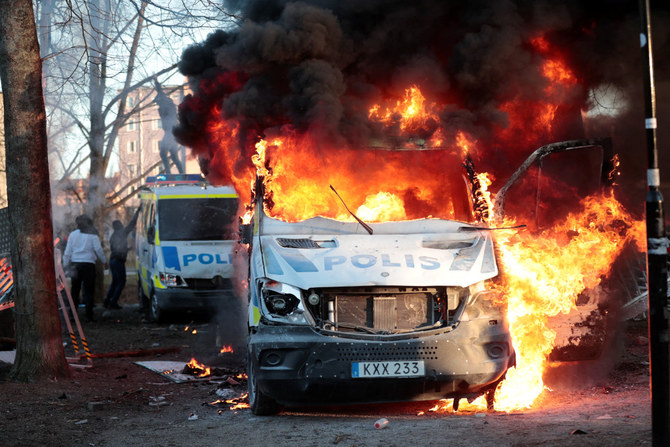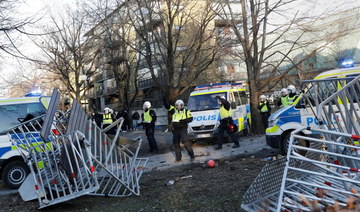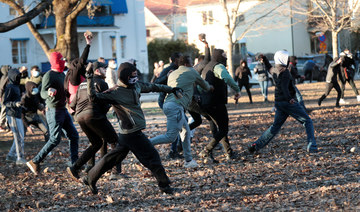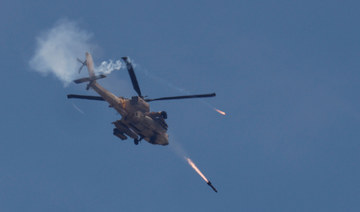JEDDAH: Arab and Muslim countries have strongly condemned plans by Sweden’s notorious far-right group Stram Kurs to burn copies of the Qur’an, the holiest book in Islam, during the month of Ramadan.
Clashes broke out in Norrkoping, Linkoping, Rinkeby, Malmo, Orebro, and the capital Stockholm over the weekend as police tried to prevent the book-burning taking place.
Saudi Arabia condemned the group’s “deliberate” abuse of the Qur’an as an incitement against Muslims, calling instead for the promotion of a culture of dialogue, tolerance and religious coexistence.
Opinion
This section contains relevant reference points, placed in (Opinion field)
“The Ministry of Foreign Affairs expresses the Kingdom of Saudi Arabia’s condemnation of the deliberate abuse of the Holy Qur’an, provocations and incitement against Muslims by some extremists in Sweden,” the Saudi Ministry of Foreign Affairs said in a statement.
The Kingdom stressed the importance of renouncing hatred, extremism and exclusion, while also promoting efforts to prevent abuses against all religious groups and holy sites.
Stram Kurs’s plans were condemned by Egypt, Iran, Iraq, Jordan, Malaysia and Qatar, among others. Objections were also lodged by the Organization of Islamic Cooperation, the Muslim World League, and the Arab Parliament, the legislative body of the Arab League.
In a statement on Monday, Swedish police said 40 people had been injured, including 26 police officers, more than 20 vehicles had been damaged or destroyed, and 26 people had been arrested in the days of violence.
Danish-Swedish lawyer and far-right politician Rasmus Paludan, who founded Stram Kurs in 2017, had planned to attend the demonstration in Norrkoping on Sunday, but according to Swedish media he never arrived.

In this picture taken on Sept. 4, 2021, in Stockholm, Sweden, Danish-Swedish hate preaching politician Rasmus Paludan shows a copy of the Qur'an, which he later tore apart and put on fire. (Pelle T. Nilsson/Swedish Press Agency)
In a statement released by Stram Kurs late on Sunday, Paludan said the rally had been canceled because organizers felt the Swedish police were unable to “protect themselves and me.”
The controversy began on April 15 when Paludan shared a picture with his 4,700 Instagram followers of himself holding a book that appears to be burned at the corners. The caption reads: “Qur’an burning in Rinkeby.”
The following day, he appeared to call upon his social media followers to imitate his action with a post reading: “Time to burn the Qur’an.”
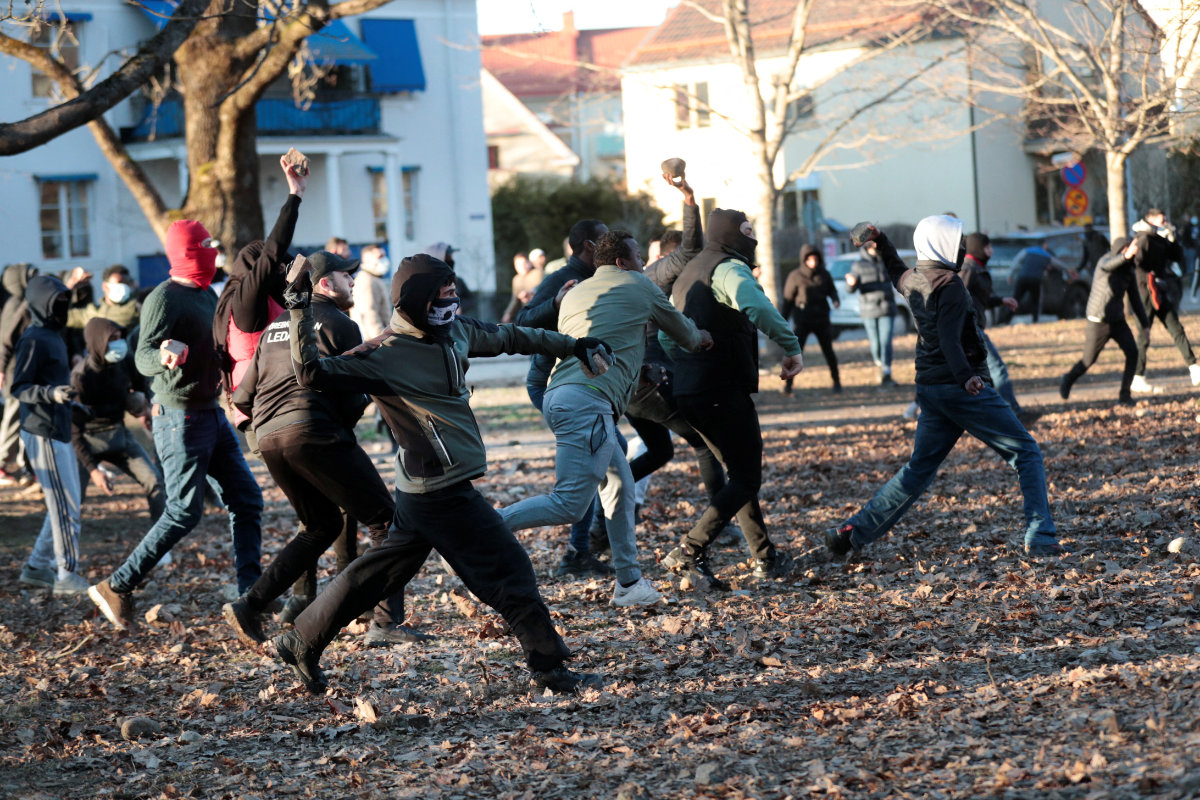
Counter-protesters throw stones at the police in Orebro, Sweden, on April 15, 2022, ahead of a demonstration planned by Danish anti-Muslim gang Stram Kurs. (Kicki Nilsson/ TT News Agency/via REUTERS)
Although still a fringe group in Scandinavian politics, Stram Kurs has gained traction in recent years, particularly in the wake of the 2015 European refugee crisis, when millions of people fleeing conflict and instability in the Middle East, Africa and Asia began arriving on European soil.
Stram Kurs and other groups on the far right routinely seek to stir up hostility against Muslims, economic migrants and refugees, even calling for the mass deportation of these groups in order to, in their words, preserve Sweden’s authentic ethnic identity.
Paludan, who intends to stand in Sweden’s legislative elections in September, is currently touring the country to secure support for his candidacy, often deliberately campaigning in areas with large Muslim communities.
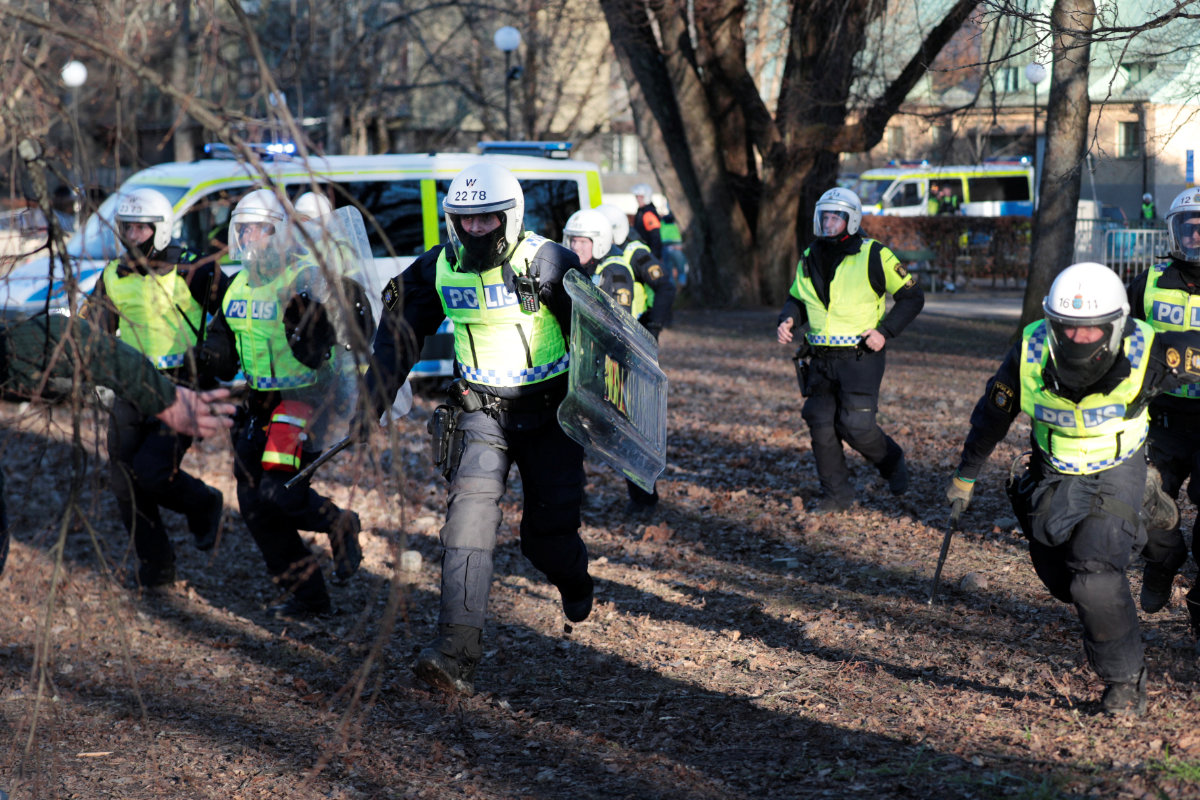
Police officers chase rioters in in Orebro, Sweden, ahead of a demonstration planned by Danish anti-Muslim politician Rasmus Paludan and his Stram Kurs party on April 15, 2022. (Paul Wennerholm/ TT News Agency/via REUTERS)
This is not the first time Paludan has sought to provoke Muslims with calls to publicly burn the Qur’an. In November 2020, his website urged supporters in Paris to assemble at the Arc de Triomphe to “burn the Qur’an in preparation for the peaceful public assembly.”
That same month, Paludan also urged supporters to gather in the Brussels suburb of Molenbeek, where “the European patriots will burn the Qur’an in blatant contempt of the religion of Islam.”
For inciting hatred against the Muslim community on Stram Kurs’ social media accounts, Paludan was sentenced to a month in jail in 2020. The previous year, he was handed a suspended sentence for racism and faced 14 charges, including defamation and dangerous driving.
Paludan is also not the first public figure to incite hatred by attempting to burn copies of the Qur’an. In 2010, Terry Jones, a Florida pastor and founder of the nondenominational Dove World Outreach Center, vowed to mark the ninth anniversary of the 9/11 attacks by burning the Islamic text.
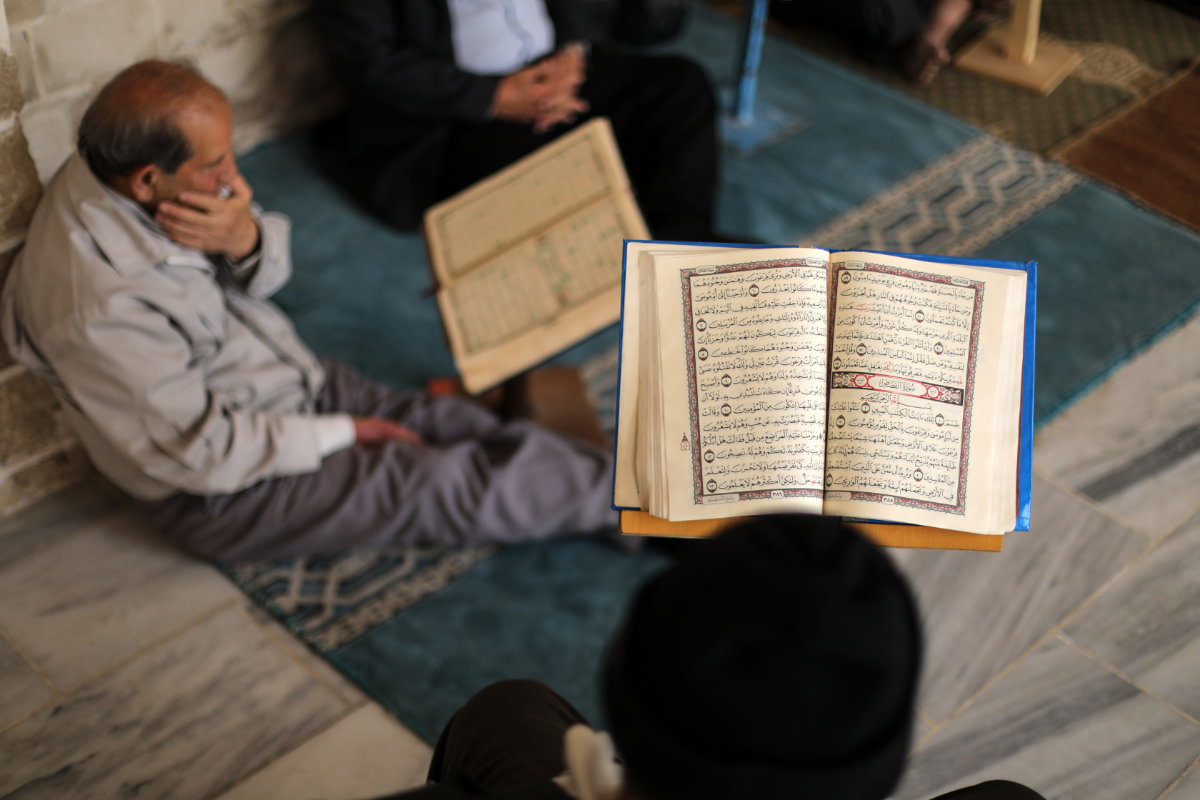
Palestinian Muslims read the Qur'an in the Al-Omari mosque during the Muslim holy fasting month of Ramadan in Gaza City on April 18, 2022. (Majdi Fathi/NurPhoto)
The planned burning drew worldwide condemnation, with even the Vatican and the UN urging Pastor Jones not to go ahead with it.
David Petraeus, then commander of the International Security Assistance Force in Afghanistan, warned the burning could be exploited by the Taliban and other extremist groups to garner support or promote acts of terrorism on Western soil.
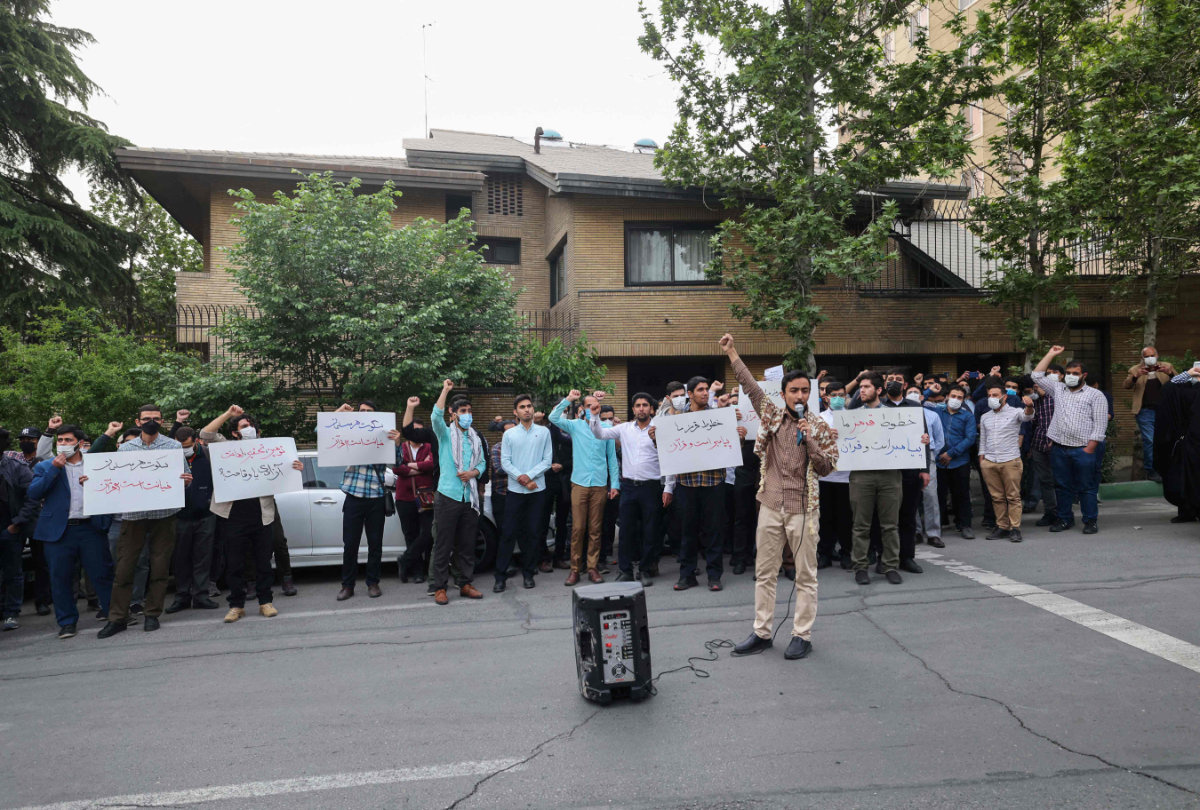
Iranian students demonstrate in front of the Swedish embassy in Tehran, on April 18, 2022, to protest a Swedish far-right group's plan to burn the Muslim holy book. (ATTA KENARE / AFP)
“It is precisely the kind of action the Taliban uses and could cause significant problems. Not just here, but everywhere in the world we are engaged with the Islamic community,” Petraeus said at the time.
Then-president Barack Obama likewise warned, when asked about Pastor Jones’ plan on ABC’s “Good Morning America,” that the Qur’an burning “could increase the recruitment of individuals who would be willing to blow themselves up in US cities or European cities.”
Following the outcry, Pastor Jones did not go ahead with the mass burning on the 9/11 anniversary.
It remains to be seen whether similar condemnation will dissuade Paludan and Stram Kurs supporters from going ahead with their own burning.




